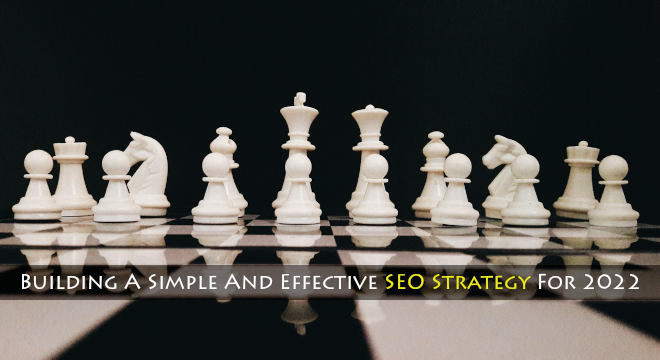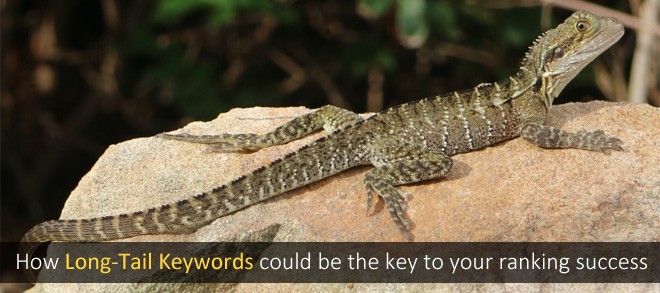
Whether you have worked with a big SEO agency or an enthusiastic digital marketing start-up, you will see them do probably the same set of things-
- Get a set of keywords relating to your industry niche
- Create guest posts for those keywords (link your web pages)
- Engage in link building on profile linking sites
Many businesses fail to realize that SEO success does not need to be this difficult. In other words, ranking for keywords and driving organic traffic does not need to be back-breaking work.
In this resource article, we are going to look at how businesses, both big and small, can build a simple and effective SEO strategy. If you are looking to drive organic traffic, improve sales and build online credibility, please check out what we have to say.
What Is An SEO Strategy?
An SEO strategy is a set of ideas, processes, and principles that are created and executed with the purpose of resulting in solid online performance. Ranking keywords, higher web traffic, more sales queries, and contact form submissions are some important KPIs of an SEO strategy.
There are two goals of any SEO Strategy:
- Make a website rank higher on the SERPs for their industry keywords (the search terms people use for finding out about a brand, service, or product).
- Generate more organic traffic that will not stop when you stop investing in a strategy like Google Ads, Facebook Advertising or any other paid marketing medium.
The most successful SEO strategies work because they cover all the foundation bases. They concentrate on elementary areas that are required to rank higher than your competitors. Most of us are prone to running after novel and innovative processes, ideas, and plans in SEO.
You need to understand that a successful SEO strategy has, at its core, three key focus areas:
- On-Page
- Off-Page, and
- Technical SEO
For the most part, Google itself informs you about the parameters and guidelines you need to follow to improve website performance through SEO.
Creating An SEO Strategy In 2022 – Five Proven And Effective Ways
In this section, we are going to help you with three simple and effective ways that should form the bedrock of your SEO strategy.
1. Create High Quality Website Pages
You need to create web pages that satisfy the expectations of both search engines and your potential customers. This means it needs to be littered with target keywords, LSIs, and other SEO phrases.
On the web traffic front, you need to work on only on the content but also on the UI (user interface) and UX (user experience). The usability aspect of a website is what will help you reduce bounce rates, boost engagement and build traction.
For many leading SEO Singapore agencies, this is the creation of the base on which a solid guest posting and link-building strategy are based.
2. Target Keywords That Are In Your Range
Try to avoid competing with businesses that are hogging the top keywords. You will never be able to outspend their budgets or resources.
If you try, you will not see any results for many years! The smart thing to do is go after ranked two, three, four, and five keywords. In other words, while your efforts and resources used will be significantly lesser, you will see drive targeted traffic.
This is referred to as the ‘low hanging fruit’ keyword strategy. You will start seeing immediate traffic, higher rankings, and more conversions with this.
[See related article: How Long Tail Keywords Could Be The Key To Your Ranking Success]
3. Plan For Optimizations To Get Better ROI
Once you have done the above two, you need to focus on the optimization part. This means trying to do as much as possible to reap ROIs (Return On Investement). One way you can do that is by optimizing first with the content.
Find out about the gaps in the ranking content and then add or subtract according to what you think will make the content more comprehensive.
Next, look to add internal links and assess what your off-page link building is doing for your brand. The more links you build, the higher your chances of ranking higher on the SERPs (Search Result Pages).
4. Focus On Search Intent
– Do you think just using the right keywords cuts today?
– No!
With the advancing search engine algorithm, search intent has become a critical aspect to look into. As a single word can have different meanings depending on the users, you must know the exact intent of the user using that keyword.
Knowing the exact intent of your users will help you generate more relevant content that serves the purpose and not just leads.
When you focus more on search intent, there is a higher chance for you to rank higher on search engines. This is because you are not only offering information. You are offering information that solves your users’ problems.
5. Focus On Customer Pain Points
If you are doing business to earn money, your approach to doing a business is wrong. Yes, you might profit a lot from the business. But, the business might not survive long enough.
The whole point of doing a business is offering help and solving customers’ pain points. Be it online or offline, if you can solve your customer’s problems, you will establish yourself as one of the most successful businesses in the industry.
Once you do it, your business will never run out of leads and traffic!
The Final Takeaway
You should not unnecessarily complicate SEO if it isn’t required. By sticking to what is basic and simple, you will be able to drive real results. Try to go for keywords that are within your range.
Use great SEO tools such as Afrefs or Semrush and work with an SEO agency that understands your expectations. You need to remember that businesses need not fit themselves into already established SEO strategies.
Instead, the SEO strategy should fit according to the business’s needs, expectations, budgets, and resources. If you have any more questions on SEO that you would like us to address, please reach out to us in the comments section below.
[Recommended reading: The Most Important Local SEO Elements We Should Not Overlook]
[Image credits: Main Photo by sk from Pexels; Australian Water Dragon: Alamy/Kris Olin]

